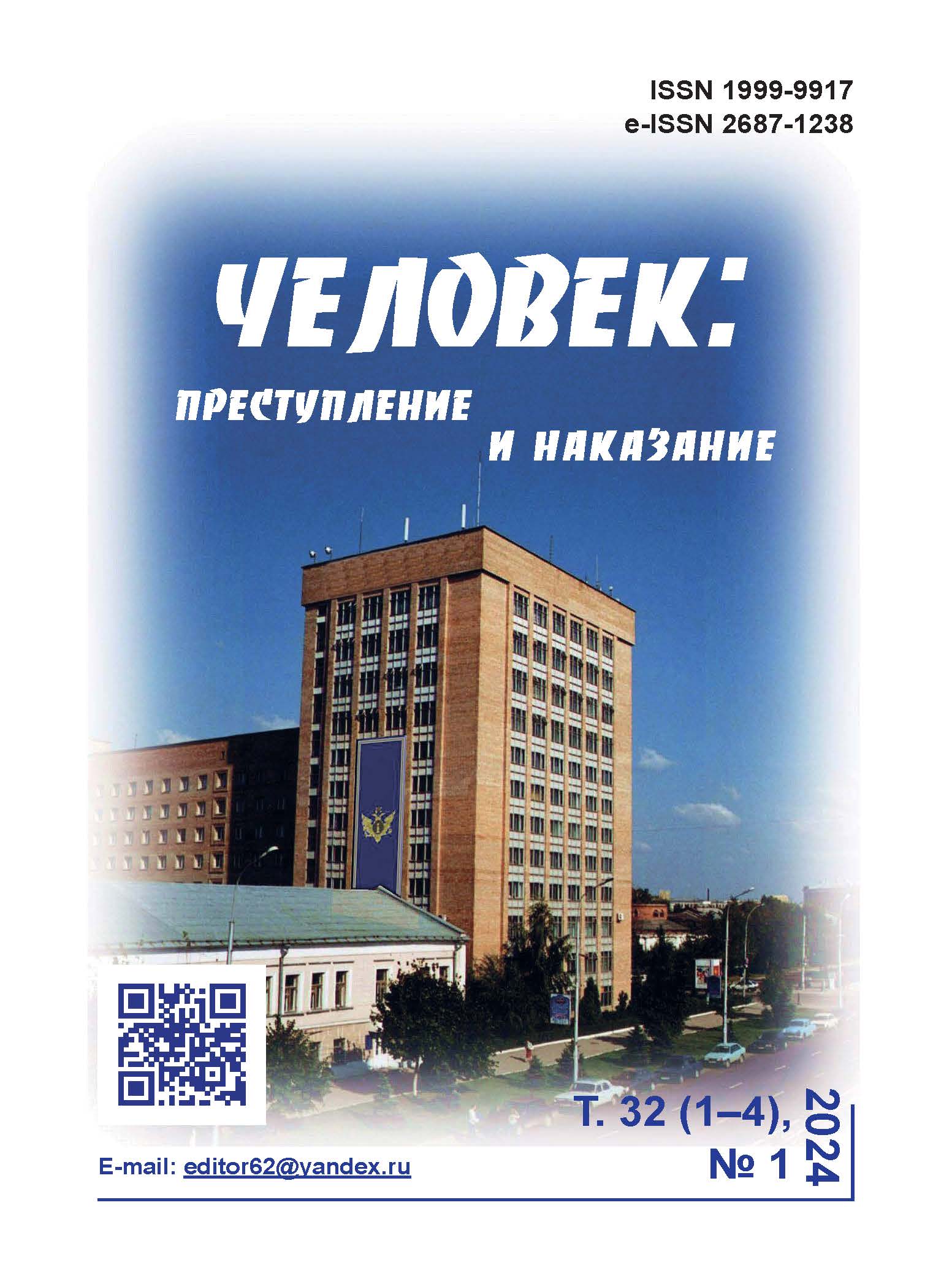UDC 343.126.7
The article is devoted to topical issues of legal regulation of one of the preventive measures chosen only on the basis of a court decision – house arrest. The authors of the article, highlighting the advantages and disadvantages of house arrest, came to the conclusion that its legal regulation in general and the definition provided for in Part 1 of Article 107 of the Criminal Procedure Code of the Russian Federation in particular need to be changed. The use of the category “isolation from society” in determining this preventive measure not only does not correspond to the legal nature of house arrest, but also complicates its positioning as an alternative to detention, which it represented at the time of adoption of the CPC of the Russian Federation. The analysis of the concept of "isolation from society" conducted in the article showed that it was its inclusion in the definition of house arrest that changed the legal nature of the latter and led to the establishment of legal restrictions that are absent even in the most severe types of criminal punishment or preventive measures (inaccessibility of suspects or accused walks). The statistics presented in the article indicate the gradual loss of independent significance of house arrest and, as a result, a decrease in the proportion of its use. The authors propose to exclude the words “in isolation from society” from Part 1 of art. 107 of the Code of Criminal Procedure of the Russian Federation, which will subsequently lead to the need to review the legal restrictions imposed by this preventive measure, strengthen independence and increase the proportion of the use of house arrest in the arsenal of means available to law enforcement officers and the court.
preventive measure, house arrest, detention, restriction of freedom, isolation from society, prohibition, restriction
1. Ovchinnikov, Ju. G. 2006, House arrest as a preventive measure in criminal proceedings: PhD thesis (Law), Omsk. EDN: https://elibrary.ru/PFFVUE
2. ‘The history of the criminal case of ex-director of the Federal Penitentiary Service Alexander Reimer’ 2020, TASS, 25 February, viewed 20 November 2023, https://tass.ru/ info/7830481?ysclid=loe5q8ivuu33505222.
3. Voronov, D. A. 2013, ‘House arrest: current state and prospects’, Scientific Bulletin of the Omsk Academy of the Ministry of Internal Affairs of Russia, iss. 4(51), pp. 28–32. EDN: https://elibrary.ru/RTAAHV
4. A large encyclopedic dictionary n.d., viewed 20 November 2023,https://bigslovar.ru/ slovo_e-10683.html.
5. Troickaja, A. A. 2007, ‘The limits and limitations of the fundamental rights of the individual: the limits of the correlation of concepts’, Bulletin of the Moscow State University, Series 11, Law, iss. 3, pp. 99–113. EDN: https://elibrary.ru/HZWJZL
6. Fatkullin, F. N. 1987, Problems of the theory of State and law: lecture course, Kazan University Press, Kazan.
7. Mal'ko, A. V. 2003, Incentives and restrictions in law: a monograph, 2nd edn, Jurist, Moscow. EDN: https://elibrary.ru/QVRHOJ
8. Geranin, V. V. & Mal'ceva, S. N. 2021, ‘Problems of functioning of correctional centers and colony settlements in the system of criminal penalties’, Man: crime and punishment, vol. 29(1–4), iss. 1, pp. 10–26.









